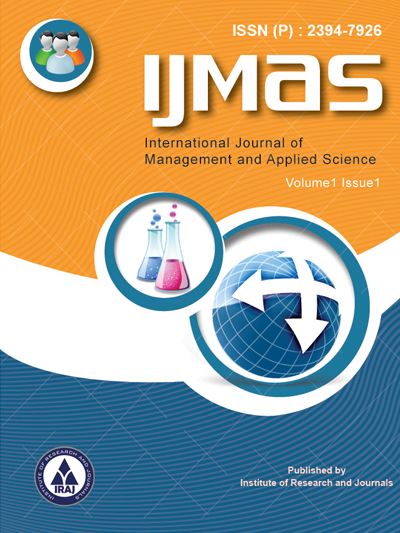Publish In |
International Journal of Management and Applied Science (IJMAS)-IJMAS |
 Journal Home Volume Issue |
||||||||
Issue |
Volume-2,Issue-3 ( Mar, 2016 ) | |||||||||
Paper Title |
Traditional Ecological Knowledge: Implications For Natural Resource Management | |||||||||
Author Name |
Suleyman Demi | |||||||||
Affilition |
Department of Social Justice Education and School of Environment University of Toronto, Toronto, Canada | |||||||||
Pages |
103-109 | |||||||||
Abstract |
Traditional Ecological Knowledge (TEK) was sidelined for decades, particularly during the 1950s and 1960s, when development theorists considered TEK as inefficient, inferior, and an obstacle to development. The trend begun to change gradually in the early 1980s due to the recognition of the potential of TEK to address problems associated with agricultural production and sustainable development. Despite the recognition of TEK, its acceptance and application in broad based policy framework was not encouraging. Current complex environmental problems facing the world require the development of complex and integrated approach to solving these challenges. Hence, the purpose of this paper is to explore the potential of TEK in managing critical natural resource. The paper traces three knowledge traditions and argues that every knowledge can be best understood within its cultural context. The paper compares and contrasts the TEK and Western science and highlights cases of positive collaboration. Keywords- Traditional Ecological Knowledge, Indigenous Knowledge, Worldview, Collaboration | |||||||||
| View Paper | ||||||||||